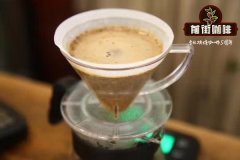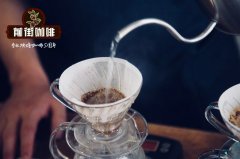What does the concept of boutique coffee mean? the definition of boutique coffee

Professional coffee knowledge exchange more coffee bean information please follow the coffee workshop (Wechat official account cafe_style)
What is boutique coffee?
The first part: we begin to learn the basic knowledge.
Whether you are a novice in the coffee industry or a lifelong consumer, we think it may be useful to solve the most basic problem: what makes boutique coffee unique?
You can say that there are as many answers as there are steps in the coffee supply chain. Although the word can be explained at the coffee level, there are two basic evaluations-physical and sensory-and their results clearly determine whether a certain type of coffee can be counted as a "specialty".
The elegant complexity of boutique coffee
"Fine coffee is really simple," said Carly Ahlenius, a green coffee expert and lab manager at Blue bottle. "this is a kind of coffee that is well handled, stable and clean. But making special coffee is very complicated. "
In other words, most of the world's coffee is sold as a commodity for a reason. From the moment the coffee tree blossoms to the arrival of green coffee on the Oakland wharf, it takes extraordinary efforts to bring physically defective, consistent, clean coffee to the market.
If this puzzles you, consider this comparison: think of the special name of coffee as the state of a fine wine. No matter where we admire Burgundy, its quality is still intact-even at roadside stops, we drink from plastic cups. You might say that the environment is harmful to the beauty of wine, but the wine itself is essentially good.
That's what boutique coffee is like. Roasters like us do their best to realize the potential of coffee, we think coffee is beautiful, and we design our coffee experience to show it. However, none of this matters if a cup of coffee does not pass the requirements that we enforce through physical and sensory assessments.
Who sets the professional standards?
While some may question how the quality of products such as coffee is standardized, industry organizations such as the Professional Coffee Association (SCA), the Coffee quality Research Institute (CQI) and the World Coffee Research Centre (WCR) are working together to define the conditions considered "professional" as accurately as possible. These organizations help establish a rule for physical and sensory assessment.
For example, SCA defines all potential physical defects in coffee and assigns values to them, creating a clear green coffee scoring method. Some defects are mild, but others smell in coffee, just as a rotten lettuce leaf can change a mouthful of tender green leaves.
At the sensory level, SCA has developed a 100-point coffee brewing evaluation system that collects specific data from a group of calibrated tasters using categories such as aroma, sweetness and acidity. Any coffee with a score of more than 80 is considered fine coffee, while those with a score below 80 are regular coffee. In addition to this scoring system, SCA has partnered with WCR to create a research-based taste wheel for coffee tasters to help coffee professionals describe the various flavors that may occur when the coffee is cooked.
Why is boutique coffee important?
These standards exist to create a fair market for coffee growers in the country of origin so that the designation of professional coffee depends on measurable properties rather than individual preferences for coffee in a particular region.
Equally important is the role of these two assessments in creating a shared language that brings into dialogue all those involved in the coffee chain, from farmers to importers to baristas. The common language enables us consumers to provide specific feedback to producers so that they can improve the quality of coffee.
This has the potential to make the world different: if a farmer can meet professional standards, their coffee can get a higher price than in the commodity market, which is what we are trying to support.
To learn more about the way we evaluate coffee, please read the second part of this series, which is made up of three parts and explores the basics of fine coffee.
END
Important Notice :
前街咖啡 FrontStreet Coffee has moved to new addredd:
FrontStreet Coffee Address: 315,Donghua East Road,GuangZhou
Tel:020 38364473
- Prev

Coffee fermentation treatment how many hours coffee fermentation treatment principle coffee fermentation process
For more information on coffee beans, please follow the coffee workshop (official Wechat account cafe_style) Coffee beans fermented and covered with slimy can be sent to the patio as natural coffee pulp to dry or to the coffee fermentor. The coffee fermentor is used to remove mucus before drying. Put the ground coffee beans into a cement can and add water, then proceed to 16.
- Next

What are the characteristics of fine coffee? what is the difference between fine coffee and fine coffee?
Professional coffee knowledge exchange more coffee bean information please follow the coffee workshop (Wechat official account cafe_style) what is boutique coffee? Part two: the story of raw coffee beans recently, we discussed how to define boutique coffee. Now, we are delving into the quality assessment process of green coffee, which is one of two ways for professionals to decide whether a kind of coffee is a specialty.
Related
- Beginners will see the "Coffee pull flower" guide!
- What is the difference between ice blog purified milk and ordinary milk coffee?
- Why is the Philippines the largest producer of crops in Liberia?
- For coffee extraction, should the fine powder be retained?
- How does extracted espresso fill pressed powder? How much strength does it take to press the powder?
- How to make jasmine cold extract coffee? Is the jasmine + latte good?
- Will this little toy really make the coffee taste better? How does Lily Drip affect coffee extraction?
- Will the action of slapping the filter cup also affect coffee extraction?
- What's the difference between powder-to-water ratio and powder-to-liquid ratio?
- What is the Ethiopian local species? What does it have to do with Heirloom native species?

